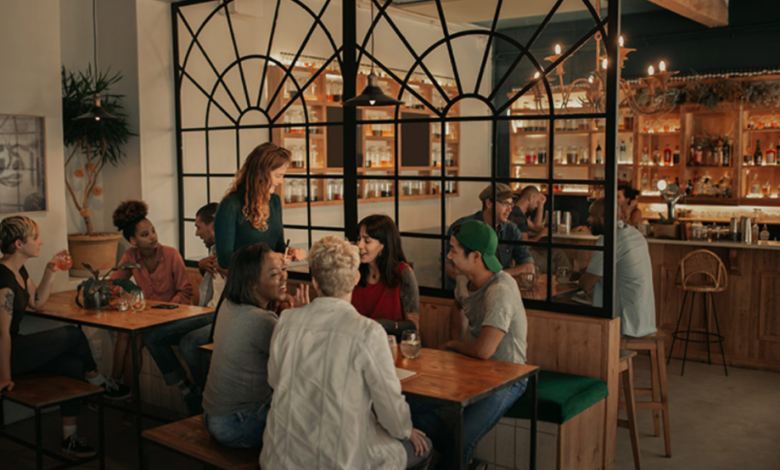Budgeting for Safety: How Much Does Restaurant Insurance Actually Cost?

Starting a new restaurant can be a thrilling venture filled with dreams of delightful dishes and happy patrons. However, behind the tantalizing menu and warm atmosphere lies the need for robust insurance coverage. With accidents, illnesses, and property damage being potential hazards, insurance isn’t just a sophisticated safeguard; it’s a necessity, savvy business owners can’t afford to overlook. Yet, considering the myriad types of insurance available and the substantial costs associated, it’s crucial for entrepreneurs in the food service industry to understand the investment required for comprehensive coverage without breaking the bank.
In this in-depth exploration of restaurant insurance cost, we’ll break down the basics, crunch the numbers, present budgeting strategies, and detail how to compare insurance providers. Whether you’re a seasoned restaurateur or a budding small business owner, this guide will arm you with the knowledge needed to prepare for the unforeseen, safeguard your investment, and ensure your business’s long-term success.
Understanding the Basics of Restaurant Insurance
Before you can budget for it, you must comprehend what restaurant insurance involves and why specific coverage types are vital to your establishment. The restaurant industry inherently faces unique risks that general insurance policies may not adequately address.
Types of Insurance Coverage Needed in the Restaurant Industry
Key coverage types for restaurants include:
- General Liability Insurance: Protects against customer injuries, property damage, and legal fees associated with claims.
- Property Insurance: Covers damage to the building, equipment, and inventory due to events such as fire, theft, or storms.
- Liquor Liability Insurance: Required for establishments serving alcohol, this policy guards against liability claims due to intoxicated patrons causing harm.
- Workers’ Compensation: Mandatory in most states, it provides medical benefits and wage replacement to employees injured on the job.
- Business Interruption Insurance: Compensates for lost income if your restaurant cannot operate due to a covered reason, such as fire or natural disaster.
Each of these plays a crucial role in the comprehensive protection of your business. Notably, neglecting to purchase a particular type of coverage—like liquor liability insurance for bars and restaurants serving alcohol—could result in substantial financial and legal repercussions.
Factors Influencing Insurance Costs
Your premier focus when budgeting for restaurant insurance costs should involve understanding the various factors that can influence your premiums. From the location and size of your establishment to your claim history, and even the experience level of your staff, many elements are at play.
It’s also vital to appreciate that each type of insurance coverage comes with its own set of cost-determining criteria. For instance, property insurance rates may be influenced by the age and condition of your building, the safety measures in place, and the area’s crime rate, while workers’ comp premiums are calculated based on payroll and the specific job classifications within your restaurant.
Calculating the Costs
Determining the cost of restaurant insurance cost can be complex, as it’s contingent on several factors. We’ll walk you through average costs based on different coverage types and the size of your business.
Factors Determining Insurance Premiums in the Restaurant Sector
To get an accurate estimate of your restaurant’s insurance premiums, consider these cost drivers:
- The nature of your business: Your specific restaurant type, such as a fast-food joint versus a fine dining establishment, will impact your rates.
- The size of your staff: More employees mean a higher risk for insurance companies, thus higher premiums.
- Your business history: A clean claim record can lead to lower rates, showcasing your establishment’s reliability and safety record.
- The safety of your operation: Implementing safety protocols and regular training can mitigate risk and potentially lower insurance costs.
Average Costs Based on Coverage Types and Business Size
Typically, a mid-sized restaurant owner can expect to pay anywhere from 1%-4% of their annual sales on insurance. A family-style restaurant with sales of $1M per year might see insurance costs ranging from $10,000 to $40,000 annually. This bracket serves as a useful benchmark to begin budgeting discussions.
For smaller operations, such as a food truck or a cafe, insurance costs may fall below the average percentage range. Conversely, larger or high-risk venues could exceed this range due to their exposure to more considerable potential liabilities.
Budgeting Strategies
Even though insurance is an unavoidable expense, there are several strategies that small business and restaurant owners can apply to manage costs effectively.
Tips for Small Business and Restaurant Owners on Managing Insurance Costs
- Bundle your coverage: Purchase multiple policies from the same insurer, which often yields discounts.
- Review and update regularly: As your business grows and changes, so do your insurance needs. Regular reviews ensure your coverage remains relevant and not over-dimensioned.
- Invest in safety: Any steps you take towards creating a safe work environment can lower the likelihood of accidents and result in a better claims history, thus lower premiums.
Importance of Budgeting for Unexpected Incidents
When funds are allocated for insurance, it’s essentially setting money aside for emergencies. In the unpredictable world of the restaurant industry, unexpected costs can quickly spiral into financial crises without the proper protection in place.
Maintaining a robust budget for insurance is not only practical but also a means of demonstrating your commitment to the safety and well-being of both customers and staff.
Comparing Insurance Providers
Not all insurance providers are created equal, and selecting the right one can have a significant impact on your costs and overall experience.
How to Choose the Right Insurance Provider for a Restaurant
- Research and get quotes: Take your time to understand what each provider offers and request quotes from multiple companies.
- Look beyond price: While the cost is an important factor, it should not be the only one. Consider the provider’s reputation, financial stability, and customer service.
Considerations when Selecting Coverage Options
- Customizable options: Your restaurant is unique, so your insurance should be too. https://schneider-insurance.com/blog/how-much-does-restaurant-insurance-cost Choose a provider that offers tailor-made policies to fit your business model.
- Coverage limits: Ensure the policy’s maximum coverage aligns with your restaurant’s potential liabilities.
- Deductibles: Understand what you are responsible for paying in the event of a claim and how it affects your overall costs.
Selecting the right insurance provider is an investment in the future of your restaurant. It’s a decision that requires thoughtful analysis, and once your research and comparisons are complete, you can move forward with confidence in your coverage and its cost-effectiveness.
Conclusion
Budgeting for restaurant insurance is not an exact science, but it is a critical part of starting and maintaining a successful food service business. By understanding the types of coverage you need, the factors influencing your premiums, and how to manage and compare costs effectively, you can ensure your establishment is well-protected without breaking the bank.
Remember, while saving on premiums is essential, it should never come at the cost of inadequate coverage. In the world of insurance, as in the kitchen, balance is key. With thorough preparation, a steady hand, and the right ingredients, your budget for restaurant insurance can set the table for long-term prosperity and peace of mind.





